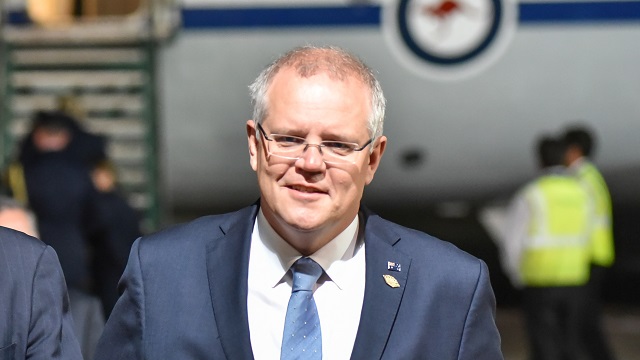
With unemployment hitting 7.4 per cent in June, the federal government has launched a $1 billion reskilling program – JobTrainer – in an effort to bring people out of joblessness and into growth industries.
The program will focus on funding or subsidising short courses to give people a step up into a number of industries, such as retail trade, wholesale trade, manufacturing, warehousing, transport, postal services, healthcare and social assistance.
“COVID-19 is unprecedented but I want Australians to be ready for the sorts of jobs that will come as we build back and recover,” Prime Minister Scott Morrison said.
“The jobs and skills we’ll need as we come out of the crisis are not likely to be the same as those that were lost.”
While the Government is putting in $500 million, it hopes states and territories will cover the remaining half of the cost, and while the details of the program are still unclear it has been stated that 340,700 training places would be available nationwide.
In June, 992,300 people were declared unemployed.
Business Council of Australia chief executive Jennifer Westacott told ABC Radio that the program was exactly what she had hoped for, and could provide people a way into more digital-focused roles.
“Let’s start looking at the digital stuff particularly. Many people who have lost their jobs, or are going to lose their jobs, will not have the digital skills that will allow them to get back to participate in the labour market,” Westacott said.
National Retail Association chief executive Dominique Lamb told Inside Retail that any scheme that seeks to transition school leavers into a job or reskills those looking for work is one the NRA welcomes in principle, and one that retail should be targeted in.
“We urge the National Skills Commission to ensure that retail is included as one of the designated targeted areas,” Lamb said.
“The retail sector can’t afford to have a skills shortage in the future and it’s essential we are included in the JobTrainer program.”
SDA national secretary Gerard Dwyer said the JobTrainer program would need to involve the tripartite consultation of government, employers and unions if it is to truly boost skills and jobs.
“When we see detail, we hope it will include funding for training in the types of careers that had growth pre-COVID-19 and are suitable for provide work for women and under 26s who are disproportionately displaced by the coronavirus crisis, for example, in retail, ICT, health, and community services,” Dwyer told Inside Retail.
“We will be looking to the package for something to support staff to continue and progress their retail careers – such as incentives for retailers to provide paid study leave.”
Larger lockdown unlikely: PM
The announcement came after the Prime Minister echoed statements by NSW Premier Gladys Berejiklian that Australia should not be pursuing a wider lockdown effort again, and ruled out targeting an elimination of the Covid-19 virus in Australia.
The statements were welcomed by industry groups, such as AiGroup, with an elimination strategy likely to require Australia to cut itself off internationally, and could severely impact the businesses already hurting.
“The Victorian experience should not be seen as a reason to switch to an elimination strategy that would tank the economy,” AI Group chief executive Innes Willox said.
“The costs of going down this route would be far greater than the extra benefits of seeking complete elimination… rather, we should get the execution of the suppression strategy right, identify and correct mistakes and do our utmost to locate, isolate and treat new infections.”
Willox also pointed to the challenges to come from the scheduled end of JobKeeper and JobSeeker payments, which are set to end in September – though further stimulus has been hinted at by the Prime Minister.
“Imposing the costs of an elimination strategy on top of a winding back of fiscal stimulus would sap businesses confidence and make many wary of investing in a second attempt at recovery,” Willox said.
Calls for existing relief to be extended
Given the difficult state Australian businesses, especially retailers, find themselves in the Australian Institute of Company Directors chief executive Angus Armour called for several temporary relief measures to be extended to the end of the 2020 calendar year.
In particular, relief for insolvent trading, the abilities for companies to hold virtual annual general meetings, and amendments to re-insert a fault element into continuous disclosure laws.
“The insolvent trading relief is not about supporting businesses with no viable future,” Armour said.
“Directors must continue to think carefully about their ongoing duty to think carefully about their ongoing duty to act in the best interests of the corporation [and] creditors when approaching insolvency, and whether incurring additional liabilities would be a prudent course of action.”
According to Armour, 81 per cent of respondents to a recent AICD survey would prefer to see a more cautious approach to phasing out stimulus and relief measures, as opposed to a rapid wind-down.
“It’s encouraging to see the Government considering a more tailored, sectoral approach to financial support going forward,” Armour said.
“This is critical in preventing a rapid deterioration in overall economic conditions.”





